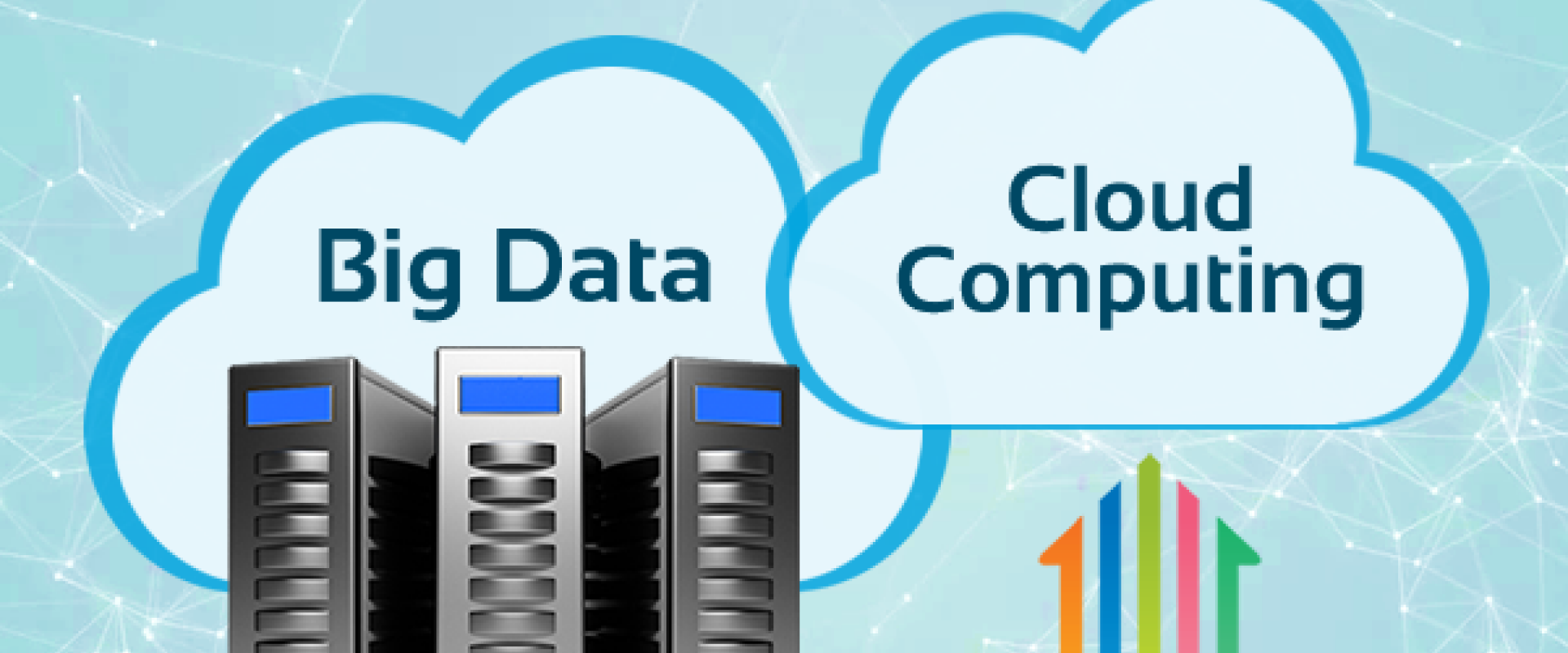Big Data and Cloud Computing - A Perfect Blend to Manage Bulk Data

Handling data is the primary need of businesses nowadays. Tackling this data is only possible with the integration of cloud computing in the IT world.
Cloud computing and big data are extremely important in the world of information technology. By using these technologies, different sectors like education, research and development, and healthcare, etc. are growing rapidly and providing their advantages with efficient tricks.
The key difference between the two is that cloud computing manages heavy storage capacity while big data is nothing but a huge amount of structures or unstructured, noisy, and redundant data from which the beneficial information needs extraction. Businesses nowadays are in the position to tackle enormous amounts of data only because of the techniques available in cloud computing to manage that data.
A Bit on Big Data
Any data turns into big data when it increases in volume, variety, velocity far beyond the capacities of information technology. The velocity of data is growing exponentially, experts say that we create 2.5 quintillion bytes of data per day. Storing, processing, and analyzing this data becomes a difficult task for enterprises. Some companies have the expertise and developed equipment to manage big data but the exponential increase in volumes and the data flow makes it a problem to mine it and to produce practicable intelligence swiftly.
A Bit on Cloud Computing
It facilitates a platform for services like storing voluminous data using high-speed internet. Cloud computing came into the market and aided developers to easily perform web-scale computing. The evolution of the internet has made cloud computing possible because it can only work on high-speed internet. It facilitates a flexible environment that has the room to add capabilities effectively.
As we have discussed big data and cloud computing, now let’s take a look at what are the advantages the two of them are providing to businesses.
Big Data and Cloud Computing - A Perfect Fit for Businesses
The need to store commodious data became a reason for the development of cloud computing. Managing big data is unimaginable without having cloud computing in the systems.
Agility
The conventional framework of storing and managing enormous amounts of data was very slow and difficult for businesses to process efficiently. It usually took days or weeks to install a server. But with the help of cloud computing, companies are gaining all the required resources. Organizations are able enough to have thousands of running servers that can work in a matter of minutes.
Increased Scalability
Think for a second about all the mediums you can gain data from. One of the main sources is social media that alone generates an infinite amount of data. All the posts, blogs, tweets, and images combined produce unlimited unstructured data that cannot be processed under a single category. Cloud computing enabled businesses to classify that data into different groups to enhance the capability of work operations.
Enable Business Continuity by Tackling Disaster Recovery
In case of power outages, equipment failure, and cyberattacks, conventional information recovery methods cannot do the tricks. Duplicating servers, storage, and networking equipment are very difficult, tedious, and expensive. Moreover, legacy systems also take enough time to back up and restore.
However, the big data stored in cloud infrastructure enables businesses to recover from disasters at a faster rate, thus ensuring uninterrupted access to information.
Challenges of Big Data in the Cloud
Migrating big data into the cloud can create various hurdles. Below are some of the challenges that companies may face while transferring their voluminous data into the cloud:
Less Security
Spacious data often contain personal credentials of individuals like credit card information, addresses, social security number, and other personal information. Data breaches and identity theft can result in questions regarding the company’s reputation and they often end up losing revenue and clients.
While migrating to the cloud, the owner of data may lose control over the information which produces a big organizational change and cause inconvenience.
To manage this, organizations require to analyze security protocols and comprehend the shared responsibility model of their cloud service provider.
Network Dependency
The downside of having data connectivity to the internet is the dependency on the internet. This reliance on the internet means that the data is prone to face network interruptions.
Latency Issues
Along with security and network dependency issues, big data in the cloud may face problems related to latency as well. Latency issues may arise while transferring a huge amount of data.
Conclusion
Big data does not have to equalize big chaos. It is a fact that companies are now managing unstructured, redundant, and abundant data. It becomes difficult for them to process such a huge amount of data. But thanks to the services of cloud computing that made it easy for businesses to not only afford voluminous data but to manage it well. Putting big data in the cloud may have some issues related to security and network dependency, but the benefits it is providing to companies still are dominant to the drawback associated with it
Relevant Blogs:
Getting Started With Apache Cassandra
What Is a Data Reliability Engineer, and Do You Really Need One?
How to Develope a Successful Business Intelligence (BI) Strategy
Recent Comments
No comments
Leave a Comment
We will be happy to hear what you think about this post